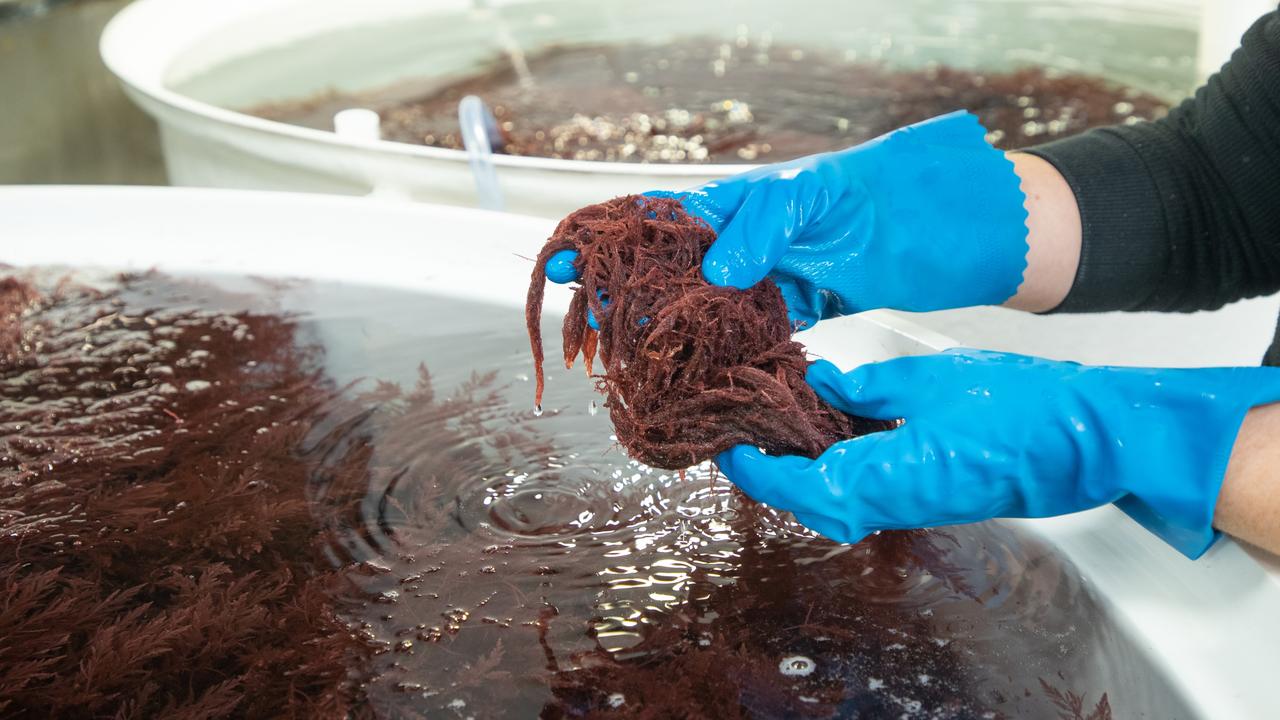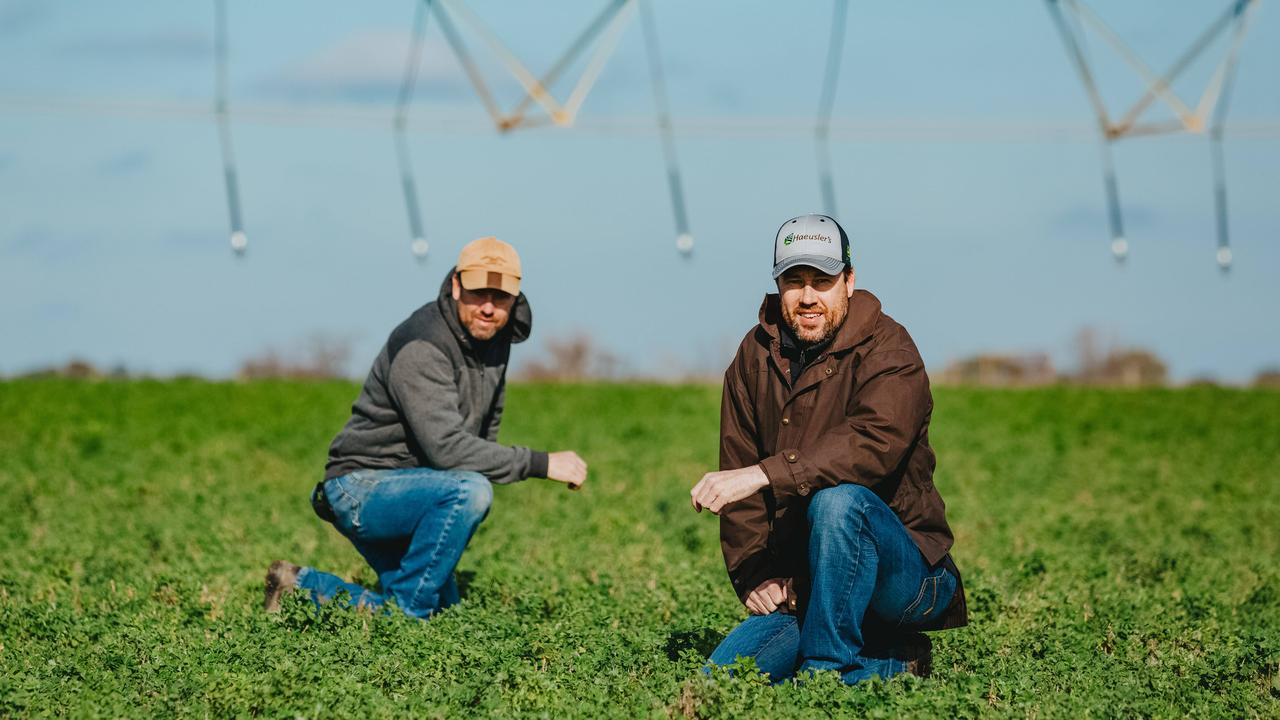Milkwood Permaculture: Couple teaching how farmers permaculture
ONCE considered a hippie idea, permaculture has become a mainstream concept that’s helping change the world for the better.
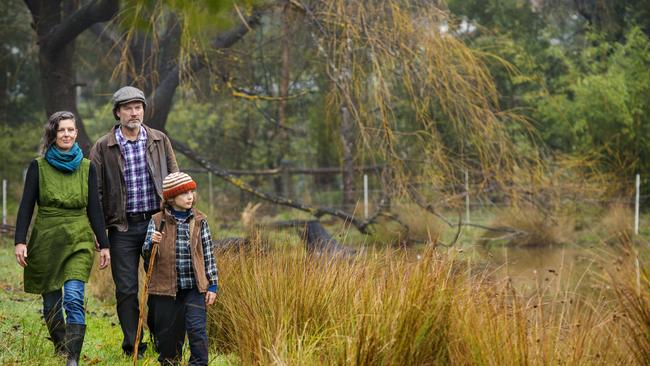
WHEN Kirsten Bradley and Nick Ritar quit Melbourne lives as artists, musos and computer techies in their early 30s for a treechange down on the farm in 2007, they had little idea where it would take them.
The farm was Nick’s parents’ property at Mudgee, central west NSW and they just knew they wanted a simpler, more natural and less expensive lifestyle. A place where they could explore their blossoming interest in permaculture, the sustainable living concept spelt out by Australians Bill Mollison and David Holmgren in the 1970s.

With no capital, but lots of passion, Nick and Kirsten built a little enviro-friendly homestead of earth and recycled materials and set up a market garden.
Although they were happy (Kirsten also became pregnant about this time), they generally did it tough in their down-home surrounds.
“We just got completely side-swiped by organic agriculture and passionate about health and doing it ourselves,” Kirsten says.
About this time too drought hit, followed by more drought, and they saw the traditional farmers around them suffering horribly.
Community minded and with strong social consciences, they were compelled to act. From educational backgrounds (Kirsten’s parents are both school teachers, as is Nick’s mother) they started running practical workshops on topics such as building dams to help their farming neighbours.
Quickly those workshops became the template for educational organisation Milkwood Permaculture, and their property, Milkwood, a classroom for permaculture design courses.

When Nick’s parents sold the property the location changed, but not their permaculture passion.
Today Milkwood is based at Hepburn, central Victoria and in 10 years has welcomed nearly 10,000 eager students to its workshops and courses on permaculture subjects as diverse as design and market gardening to gourmet mushroom growing and beekeeping.
In its pursuit of permaculture learning, it has hosted Australian lecture tours by some of the world’s best known organic experts, including Zimbabwean ecologist and environmental farmer Allan Savory, American farmer, author and lecturer Joel Salatin and American food writer, activist and fermentation expert Sandor Katz.
Interestingly, Milkwood’s – and Kirsten, Nick and their nine-year-old son Ashar’s – home for about two years has been at Melliodora, the property and long-time base of permaculture co-originator David Holmgren and his partner, Su Dennett.
The permaculture pair invited the trio to share the property, considered a global laboratory for permaculture practice, as part of a mutually beneficial residency in organic living and homesteading.
I meet Kirsten and Nick in their cosy Melliodora mudbrick home over a lunch of nearly all home raised or grown ingredients and including such treats as fermented ricotta, pickled carrots, chicken pate and chicken with rice.
Today the pair boasts being nearly self-sufficient, maintaining an extensive vegie garden and orchard while running a few chickens, geese and milking goats.
Yet despite this organic industry, the only farm produce being offered for sale now, they explain, is permaculture education.
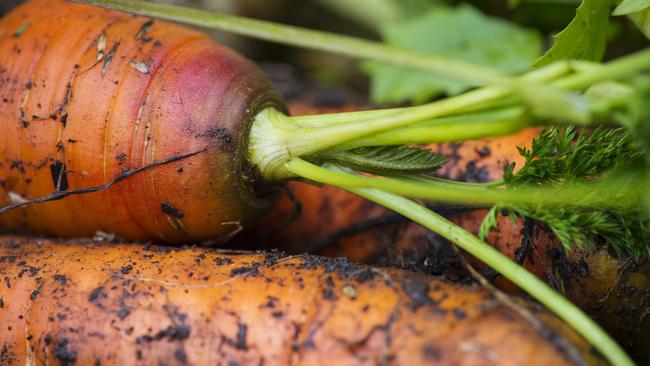
The rest, in true permaculture tradition, is being shared, bartered or preserved and pickled for future use and for feeding those who come here to learn about permaculture.
Ever the educator, Nick, with support from Kirsten, talks long and enthusiastically, dissecting areas of permaculture that interest farmers and non-farmers alike.
WHAT IS PERMACULTURE?
“So many people think of permaculture as this messy garden technique with lots of mulch and swales and a compost heap. It’s much broader than gardening or even than farming.
“The idea is that we can create a culture that is enduring for humanity, a way of living on this planet which doesn’t degrade it. But makes it better and makes the environment around us healthier and makes our community stronger.
“I don’t care if you don’t compost or mulch. It comes down to everything being in context.
“So every strategic decision we make in how we manage our land, or how we manage our people, and how we manage ourselves, comes down to a context.”
Permaculture was once seen as an alternative lifestyle. Has that changed?
“It became more associated with alternative culture in Australia but that had more to do with the fact that in the 1970s, when David (Holmgren) and Bill Mollison were proposing ‘caring for the earth’ as one of our core ethics, it was really radical.
“Now it’s thought that caring for the earth is not radical at all. Most logical people think they need to care for the environment in some way.”
WHY ARE YOU SO INVOLVED IN SPREADING THE PERMACULTURE WORD?
“We started this because we are really passionate about trying to create a better future, and just doing it ourselves doesn’t have much of an effect on the rest of the world … the teaching has always been the way that we have done that.”
IS IT POSSIBLE TO BE A BROADACRE FARMER AND A PERMACULTURIST?
Definitely, Nick and Kirsten both insist, reeling off the names of farmers they believe do it successfully. They point to Colin Seis from Winona, near Gulgong in central NSW, who developed a method called Pasture Cropping that allows direct seeding into established perennial pastures while dramatically reducing costs.
“It reduces the passes with a tractor from five or six down to a direct seeder being towed behind a ute and then the harvester,” Nick says.
Another, Kirsten says, is grazier David Watson of Millpost Merino in the Southern Tablelands of NSW who has employed broad scale permaculture techniques since 1979.
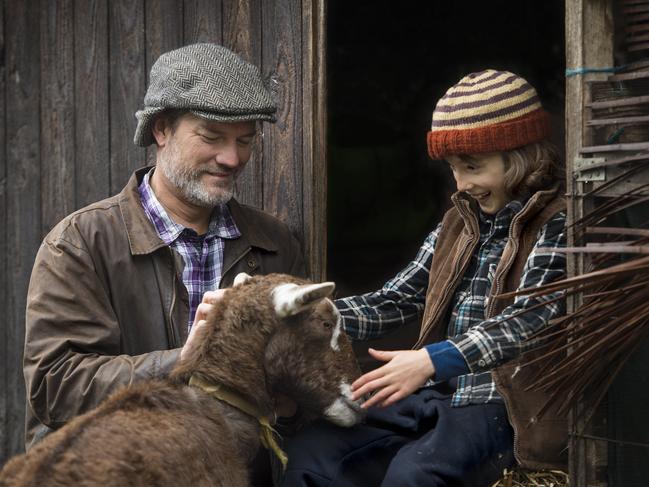
CAN ORGANIC PRODUCE COMMAND MORE MONEY?
Not necessarily, Nick says.
“We know the environmental costs that conventional agriculture is creating are not being paid for by conventional agriculture, so that’s a big subsidy to that kind of agriculture. The cost is being paid for by the planet and our entire human population, and that cost is being spread.
“Whereas the person who takes on that responsibility themselves and doesn’t incur that cost on nature has to pay the fee in extra labour, or other techniques which cost more. And that’s what the organic, biological or regenerative farmer has to do. That means it’s fundamentally more challenging to make a profit.”
DO ANY MODERN-DAY FARM TECHNIQUES WORRY YOU?
“I’m more concerned with the trends of agriculture in Australia rather than specific farm practices. I think the ‘get big or get out trend’ is horrific for everybody, from a social context, for the environment.
“You reduce the diversity of our agricultural systems. Getting big means you reduce the number of people. It’s a force for homogenization, simplification. The simpler something is the less stable it is, the more prone it is to falling over.
“I can see why people want to do it, to make a business more profitable, but I don’t think they’re good outcomes for our society.”
HAVE YOU ADVICE FOR SOMEONE STARTING A SMALL FARMING OPERATION?
“Be careful of your success. Some people are like, ‘I want to move to the country and I want to start a small business’. They might want to make kraut or run alpacas, and what happens is there is a divide between doing something as a hobby and using it as a way to engage with the local community and maybe generating a small amount of income.
“A lot of people are very skilled, have run businesses before and been really successful in the city.
“Then they move to the country with a small business and start making it work and, three or four years later, it’s working and is scaled up and they’ve got a big shed out the back and are employing people and sitting behind a computer, or commuting to the city.
“At the end they haven’t actually created a lifestyle associated with the property at all. All they have done is transfer their existing lifestyle to the country, and it’s probably a lot less comfortable and the coffee is not as good.”
SO WHAT IS NEEDED?
“If people decide to move to the country, they need to come up with a really strong vision of the way they want to live their life, and what that actually involves on a day-to-day basis.”
Kirsten believes the best first step is to undertake some holistic management training.
“You need to do some goal setting, getting everyone who is going to be living there or deeply involved emotionally or financially sitting around a table discussing goals and checking you are all on the same page. If you don’t, you can get pretty far down the road before you realise you hadn’t really thought through the implications.”
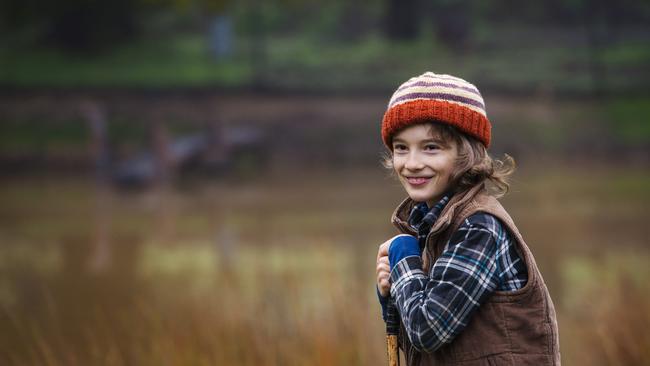
WHAT ARE SOME OF THE BIGGEST PROBLEMS FOR NEW SMALL-SCALE FARMERS?
Debt and a mortgage, Nick says.
“If you have got yourself settled with a warm place to sleep and a little bit of ground to grow some vegies, then the cost of life goes down a lot. But if you’re paying off a mortgage, it’s so challenging.”
IS GOVERNMENT DOING ENOUGH FOR THE ENVIRONMENT?
“Many local governments are doing a fantastic jobs in improving the holistic approach to agriculture.
“God help anybody who’s got the responsibility for making decisions for the whole of the state or the whole of Australia. I don’t want to criticize anyone in that position because I think it’s incredibly challenging.”
PERMIE THOUGHTS ON SHARING LAND:
“You shouldn’t have to go out and earn a million dollars to get access to land. Right now there are many people on the land who don’t have secession plans or don’t have ways to work out how farms can continue.
“Part of what we are trying to do (at Melliodora) is provide an example to people who are really passionate to use the land, to get access and continue to do that, rather than having to take that in-between step of going off to the city and getting a high powered job, working for someone whose ethics don’t align that well with theirs, in order to come back on the land.
“That doesn’t make much sense at all. Part of this is how two families who aren’t related, but do share beliefs, work out that kind of transition.”
● WWW.MILKWOOD.NET
Local economy
NICK and Kirsten regard David Holmgren and Su Dennett’s invitation to share the 0.87-hectare Melliodora property as an example of permaculture philosophy at its finest.
“This place is their long-term project to which we are recent arrivals,” Kirsten says.
In return for working part of each week on the property with their hosts, Nick and Kirsten share in the produce while running educational workshops through Milkwood Permaculture.
The two families jointly grow a vast range of vegetables, berries, mushrooms and fruits while running milking goats, chickens and geese, pickling and expounding the virtues of permaculture.
Both families adhere passionately to David and Bill Mollison’s original concept of permaculture: consciously designed landscapes that mimic the patterns and relationships found in nature, while yielding an abundance of food, fibre and energy for provision of local needs.
By the book

NICK and Kirsten have just released their first book, Milkwood: Real skills for down-to-earth living.
Described as a book to read with a pot of tea and a notebook, it takes in everything from growing your own food and beekeeping, to foraging for edible seaweed and growing mushrooms.
Mainly written by Kirsten, with heavy input from Nick and other organic experts, it’s inspired by an incredibly successful American series of books called Foxfire. Foxfire started as a 1970s high school project with students interviewing neighbours in the Appalachian Mountains region on subjects as varied as cooking possums, log cabin building, snake lore, faith healing and moonshining. Nine million copies of Foxfire books were sold in the first decade of publication. Nick and Kirsten would love to achieve similar and already have ideas on the drawing board.

